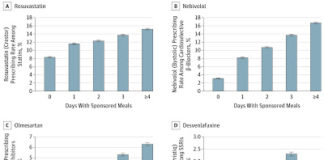Now that the British pharmaceutical industry has published its advice to members about using social media for drug promotion (see “Brits Beat FDA & PhRMA: Issue Social Media Guidance for Pharma), the logical question to ask is “Should PhRMA (the US industry’s trade group) follow ABPI’s (the Association of the British Pharmaceutical Industry) lead and update its Direct-to-Consumer (DTC) Guidelines to cover drug promotion to consumers via the Internet and social media?” Although such advice and guidelines are voluntary and do not carry any legal weight, it would help the drug industry, which is not waiting for FDA guidance and is already doing quite a bit of promotion via social media.
When I asked PhRMA if it had any response to the Brit’s published guidance and if PhRMA would follow ABPI’s lead and update its DTC Principles to include “advice” on how to apply those principles online, I received this response from PhRMA attorney Jeff Francer (via Jeff Trewhitt, PhRMA’s Media/Public Affairs spokesman):
“The Food and Drug Administration is taking the lead, and we’re eagerly awaiting the guidance the agency is completing.”
To which I responded:
“Ha Ha! I’m sure you guys know more about where FDA is going and when it will get there than I do!”
Whatever guidance the FDA may issue, it only will inform the drug industry how to stay within the LETTER of the law (ie, fda regulations). What’s needed, IMHO, is some guidance on BEST PRACTICES that the industry should follow. Those best practices can go BEYOND the letter of the law.
PhRMA’s voluntary DTC guidelines, for example, include principles that ban REMINDER drug ads (see definition here) on TV and Erectile Dysfunction ads on TV shows that children are likely to watch. Those principles go well BEYOND what the FDA requires.
Why not start thinking of social media principles that also go beyond what the FDA requires? That I believe is the role of voluntary guidelines and something appropriate for PhRMA to take the lead in developing.









![6 Digital Tools at the Center of Healthcare Digitalization [INFOGRAPHIC]](http://ec2-54-175-84-28.compute-1.amazonaws.com/pharma-mkting.com/wp-content/uploads/2021/04/6DigitalTools_600px-100x70.jpg)




